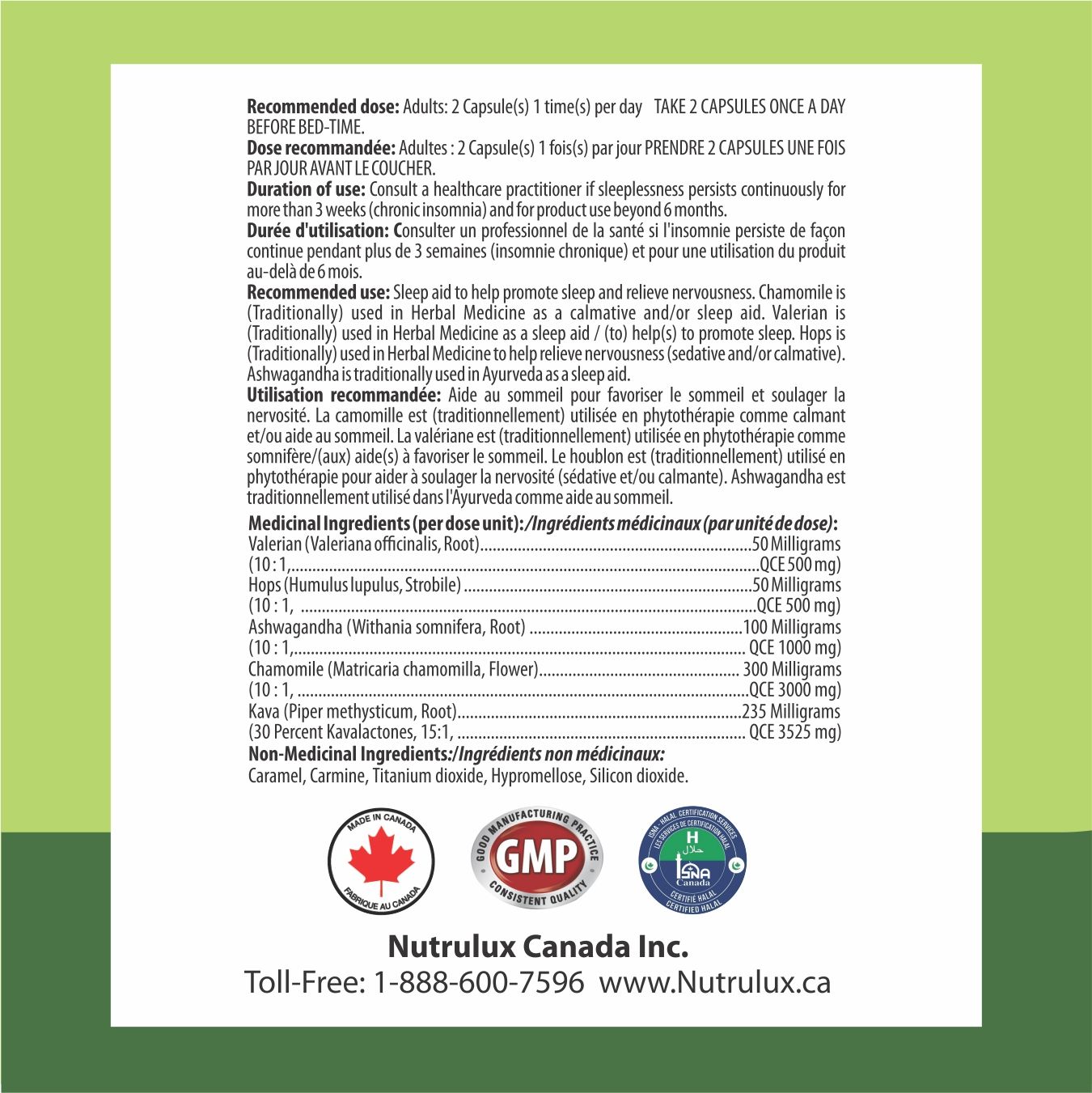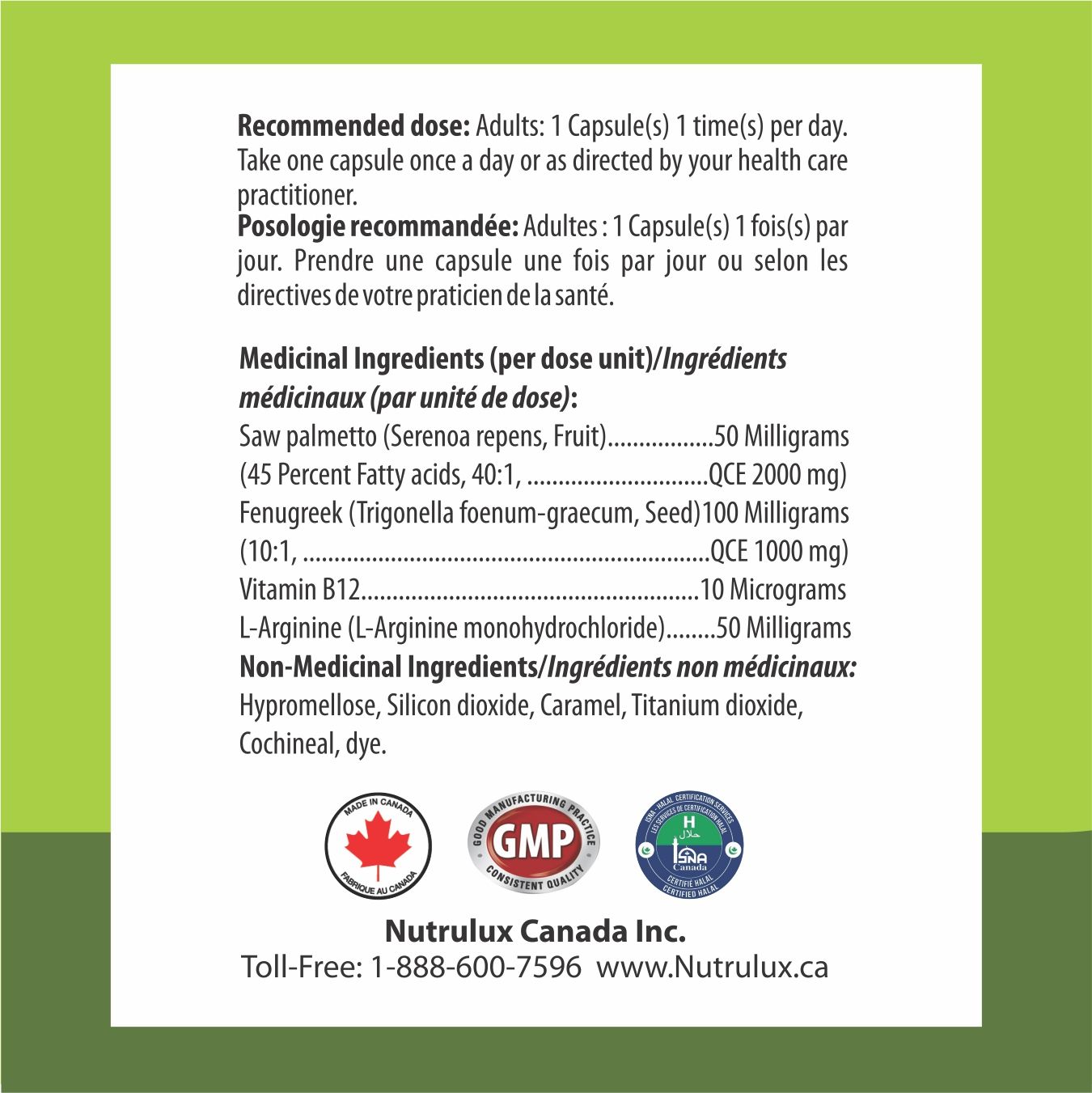Fit & Healthy Bundle For Men & Women ( 60 mg Vitamin C & 10 mg Vitamin B12 ) Halal Gelatin Free Capsules
$44.97
When we exercise, our bodies use three main sources of fuel: carbohydrates, fat, and protein. Carbohydrates, which are stored in the liver and skeletal muscles in the form of glycogen, provide the most efficient source of energy during exercise. Glycogen can be easily metabolized into glucose, which provides immediate energy to fuel the brain, nervous system, and muscles during exercise.
Recommended dose: Adults: 2 Capsule(s) 1 time(s) per day TAKE 2 CAPSULES ONCE A DAY BEFORE BED-TIME.
Duration of use: Consult a healthcare practitioner if sleeplessness persists continuously for more than 3 weeks (chronic insomnia) and for product use beyond 6 months.
Recommended use: Sleep aid to help promote sleep and relieve nervousness.

Description
What is Stress?
While everyone has specific life stressors, factors related to job pressure, money, health, and relationships tend to be the most common. Stress can be acute or chronic and lead to fatigue, headaches, upset stomach, nervousness, and irritability or anger. Regular exercise, adequate sleep, and good nutrition are some of the best ways to better equip your body to combat stress, but several vitamins and supplements can also help.
Natural sleep aids are over-the-counter supplements intended to help you fall asleep faster or stay asleep throughout the night. They are usually plant-based, a vitamin or mineral already present in our diets, or supplemental amounts of something produced by the body. There are not strict guidelines surrounding the use of the word “natural” for supplements, and many natural supplements, such as melatonin, tend to be synthetically derived. Many customers prefer natural sleep supplements because they tend to have fewer side effects than prescription sleep medications. They also appeal to people who prefer natural products or are concerned about the addictive potential of prescription sleep aids.
Sleep should be relaxing, but many struggle to get the recommended seven or more hours per night of shut eye. Considering the serious consequences of not sleeping enough — including reduced performance, and increased risk of cardiovascular disease, cancer, diabetes, high blood pressure, and car accidents — it is no surprise that many people turn to sleep aids to help them rest. While prescription and over-the-counter drugs are one option, natural sleep aids are also popular. Getting the details about the types of natural sleep aids, their potential benefits and downsides, and how they are regulated can help you make informed decisions about using and purchasing these products. Many people regularly miss out on the recommended seven-plus hours of sleep a night. Beyond cranky mornings and coffee cravings, sleeplessness can have real impacts on health, as rest is essential to brain function, immunity, muscle repair, metabolic health, and much more.
What are stay fit and healthy supplements?
When we exercise, our bodies use three main sources of fuel: carbohydrates, fat, and protein. Carbohydrates, which are stored in the liver and skeletal muscles in the form of glycogen, provide the most efficient source of energy during exercise. Glycogen can be easily metabolized into glucose, which provides immediate energy to fuel the brain, nervous system, and muscles during exercise.
When we exercise, our bodies use three main sources of fuel: carbohydrates, fat, and protein. Carbohydrates, which are stored in the liver and skeletal muscles in the form of glycogen, provide the most efficient source of energy during exercise. Glycogen can be easily metabolized into glucose, which provides immediate energy to fuel the brain, nervous system, and muscles during exercise. The body’s glycogen supply can provide enough fuel for 90–120 minutes of vigorous activity. The depletion of glycogen stores in the body creates the feeling of “hitting a wall” during exercise. As glycogen stores are depleted, the body begins to break down fat to burn for fuel, especially during low- to moderate-intensity activity. In the latest stages of prolonged exercise when glycogen stores are at their lowest, the body begins to break down skeletal muscle protein for glucose production. Physical activity can also induce muscle growth, also known as hypertrophy. Weightlifting and other resistance training exercises are commonly used to increase skeletal muscle mass, but cardiovascular exercise like running can also spur muscle growth. Physical activity causes structural damage to muscle fibers, especially when muscles are challenged with multiple repetitions of heavy weights. The body’s repair response involves fusing broken muscle fibers together to form new muscle protein strands, which in turn increases muscle size. A variety of factors influence how rapidly muscles grow with exercise, including the amount of weight lifted and the number of repetitions.






















